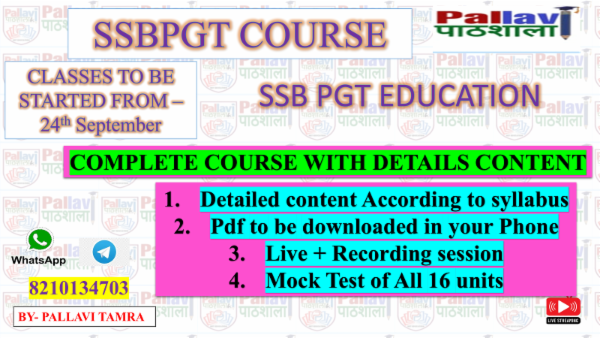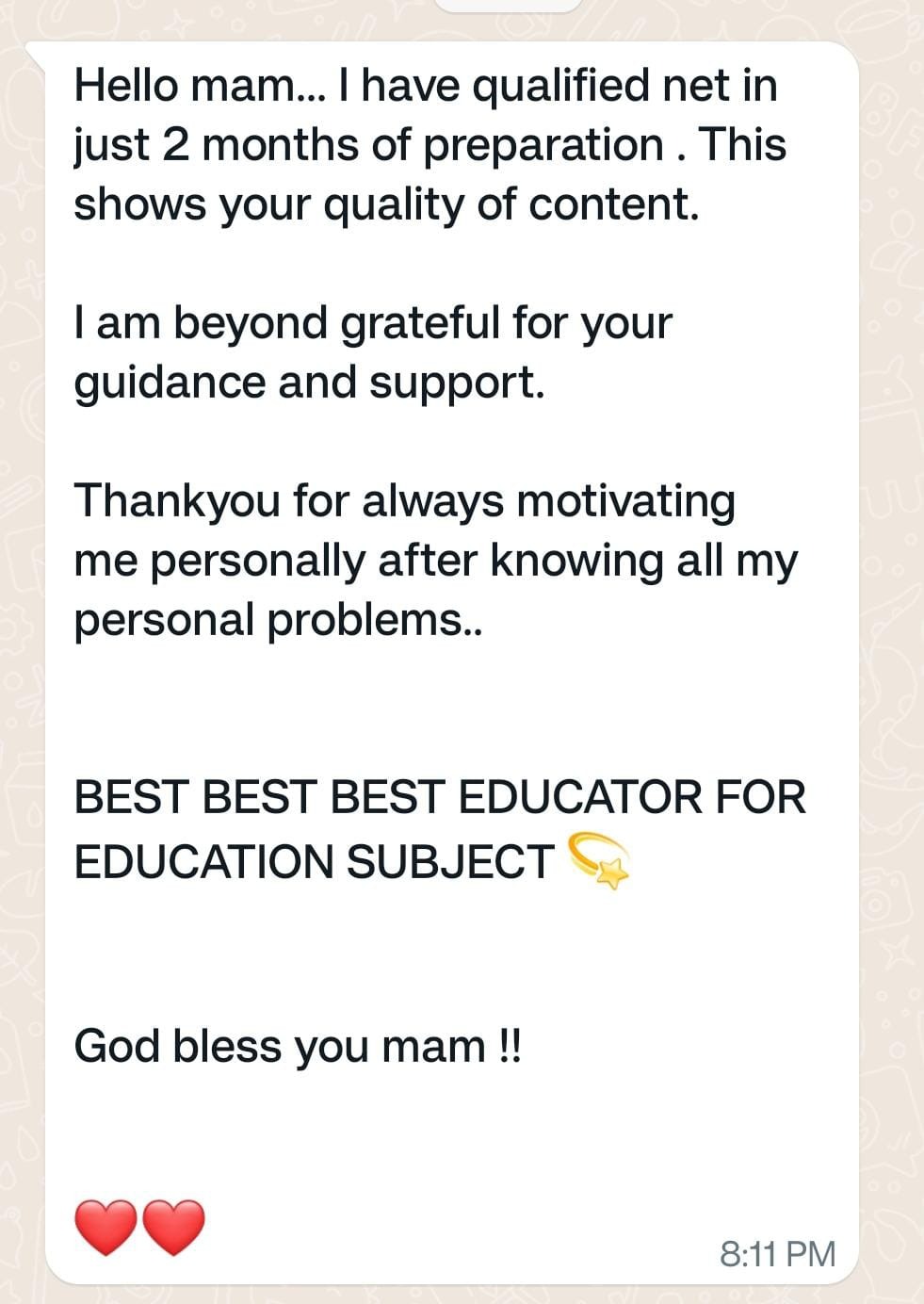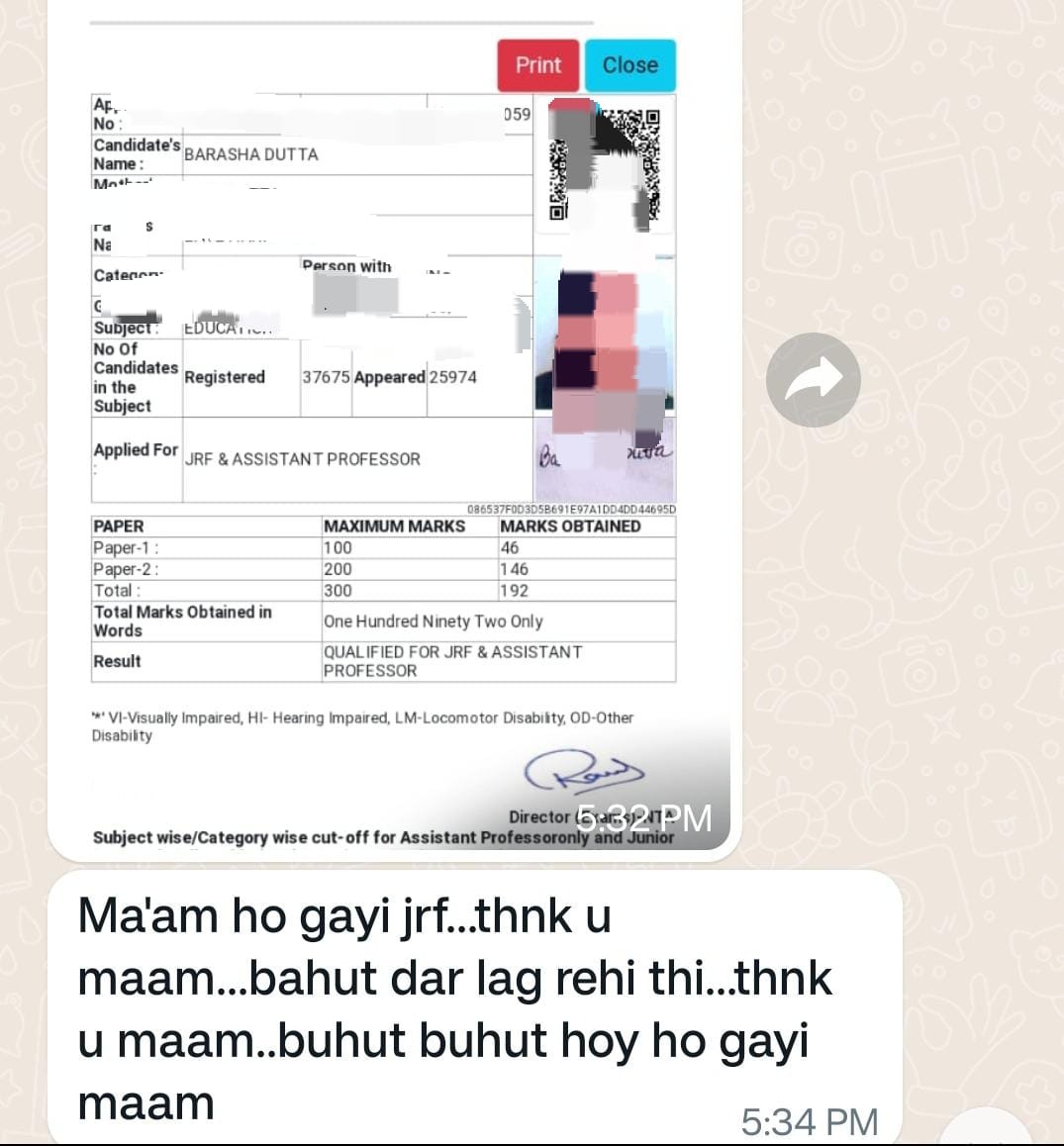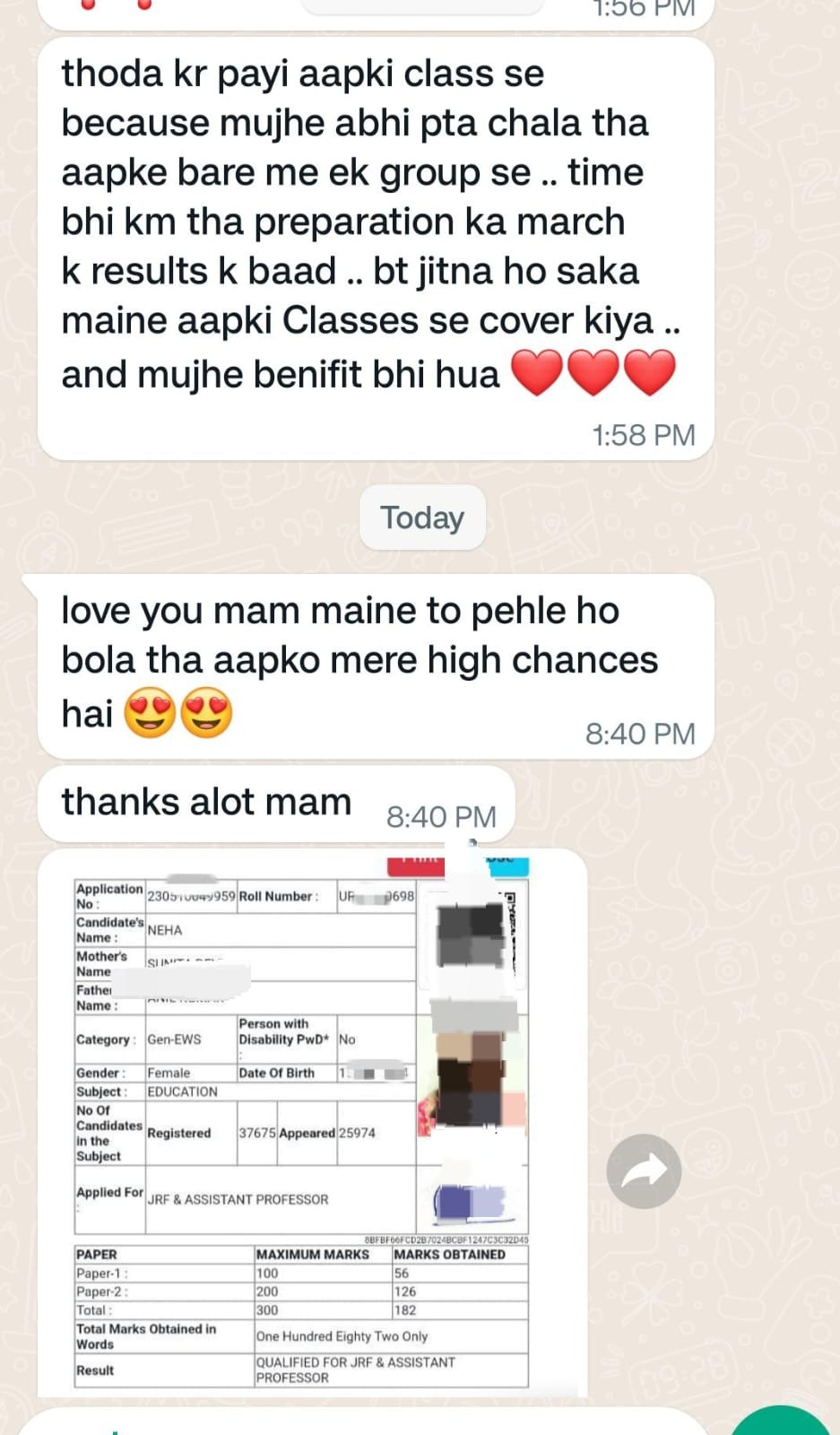There are no items in your cart
Add More
Add More
| Item Details | Price | ||
|---|---|---|---|
Unlock Your Potential with SSB-Odisha Lectures
4.6 (5 ratings)
Language: ENGLISH
Instructors: PALLAVI TAMRA
Validity Period: 270 days
Why this course?
This complete course is designed for aspiring lecturers who wish to work in Non-government-aided colleges in Odisha.
1.Unit wise complete content live Content + recording content also
2.Mock test Unit Wise
3. PDF TO BE DOWNLOADABLE (Some topics)
The curriculum is designed to cover all the essential topics and skills required for teaching in these colleges. This Course Covers all the detailed content of Both Paper I and Paper II.
PAPER -1
•Unit -I Relationship between Philosophy and Education, Western Schools of Philosophy and their educational implications Existentialism, Perennialism, and Reconstructionism, Contributions of Gandhi, Tagore, Sri Aurobindo, John Dewey and Rousseau to educational theory and practice; Indian Schools of Philosophy and their educational implications - Vedanta, Buddhism and Jainism.
Unit - I
Measurement and Assessment Process Concept, Scope and Need, Norm-referenced and criterion referenced measurement, Function of Assessment, Basic Principles of Assessment, Bloom's Taxonomy of Educational Objectives, Assessment, Principles of Test Construction and Standardization, Reliability, Validity and Objectivity, Trends in Assessment - Grading, Semester and Continuous Internal Assessment.
Unit - II
Economics of Education - Concept, Scope and Significance, Education as Investment, Education and Economic Development, Cost-Benefit Analysis of Education, different types of costs of Education, Manpower Planning, Resources for Education Role of Centre and State in financing education, Financing Education theoretical conceptualization, Principles of Financing, Problems of financing education.
Unit-III
Meaning, Nature, Scope and Significance of Educational Technology, Components of Educational Technology Hardware and Software, Communication Process Concept and components and theories of Communication Process, Programmed instruction, Computer assisted instruction, Personalised system of instruction, Micro Teaching, Team Teaching, System Approach in instructional process, Emerging trends in Educational Technology - Teleconference, CCTV, INSAT.
Unit-IV
Concept and types of curriculum, Bases of curriculum - Philosophical, Sociological and Psychological, Factors affecting curriculum development, Conceptual framework for curriculum designing, representative curriculum design - Subject design, Discipline Design, Broad Fields Design Learner centred Design, Experience Centre Design, Curriculum Evaluation Meaning, Need and Importance, Models of Curriculum Evaluation.
Unit-V
Educational Management Meaning, Nature and Scope, Difference between Administration and Management, Leadership in Educational Management - Meaning, Nature and Styles of Leadership, Theories of Leadership, Measurement of leadership, Educational Planning Meaning, Nature and Need, Approaches to Educational Planning, Types of Educational Planning, Problems of Educational Planning in India, Institutional Planning - Meaning, Nature, Scope and Steps.
Unit-VI
Universalisation of Elementary Education Problems and Issues, Alternatives to Formal Education - Sarva Shiksha Abhiyan, Rastriya Madhymik Siksha Abhijan, Right of children to free and compulsoty education, importance of Early Childhood Care and Education, Life- long Education, Distance Education, Environmental Education, Human Rights Education, Vocationalisation of Secondary Education, Family life Education and Adolescence Education Approaches and Strategies, HIV and AIDS Education.
Unit-VII
Meaning, Nature and Objectives of Guidance, Scope of Guidance, Types of Guidance - Educational, Vocational and Personal, Essentials of launching a guidance programme, Guidance services in Schools, Counseling - Meaning, nature and scope of counseling, Different types of counseling, Steps and Techniques of Counseling, Tools of Guidance Interest Inventory, Attitude Scale and Intelligence Tests, Cumulative Record Card.
Unit-VIII
Special Education - Concept, Nature, Objectives and types of Special Education, Education of Visually and Hearing Impaired, Characteristics, degree of impairment, Prevention and Educational Programmes, Mentally Retarded Classification and remedial programmes, Learning Disable Children - characteristics, identification and educational programmes, Emotional Disturbances meaning, classification, characteristics of emotionally disturbed children and role of education.
After successful purchase, this item would be added to your courses. You can access your courses in the following ways :
Here are some interesting feedbacks from my lovely learners
Feedback by my JRF Holders
Email:
pallavitamra199543@gmail.com
WHY CHOOSE OUR PRODUCTS
Success is yours if you join us
I provide updated content with in-depth knowledge.
My content will help you not only qualify, UGCNET but also, JKSET, MHSET, JKPSC, UPHESC and all other exams related to Education.







